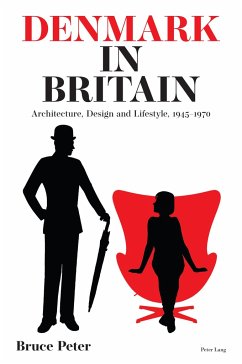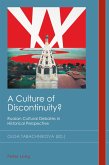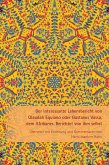«This is a splendidly lucid and readable book, a distinctive and a distinguished contribution to Nordic Studies.»
(Colin Roth, Centre for Nordic Studies, University of Sheffield)
«Eloquently narrates with precision and wit the fascinating story of how the objects and imagery of Danish architecture, design and lifestyle helped satisfy an appetite for novel and improved ways of living among British consumers during the postwar decades.»
(Martin Søberg, Royal Danish Academy School of Architecture, Copenhagen)
In the decades after the Second World War, Denmark's national image in Britain was greatly changed through the acclaim it received for its modern architecture and design, which British critics, consumers and entrepreneurs increasingly came to desire and emulate. Using architecture and design historical methods, this book relates Danish post-war success in promoting architecture and design in Britain to wider political and economic contexts. It also documents and analyses the multiple contributory aspects of what may now be considered to have been an early exemplar of the successful marketing of identity through the outputs of creative industries. In addition, it explains the human relationships and networks of acquaintances involved in the promotion of Danish creativity in Britain and of the mutually beneficial advantages achieved through the Danes' joint exhibiting of design, food and lifestyle to build appealing, multi-faceted images of the nation.
(Colin Roth, Centre for Nordic Studies, University of Sheffield)
«Eloquently narrates with precision and wit the fascinating story of how the objects and imagery of Danish architecture, design and lifestyle helped satisfy an appetite for novel and improved ways of living among British consumers during the postwar decades.»
(Martin Søberg, Royal Danish Academy School of Architecture, Copenhagen)
In the decades after the Second World War, Denmark's national image in Britain was greatly changed through the acclaim it received for its modern architecture and design, which British critics, consumers and entrepreneurs increasingly came to desire and emulate. Using architecture and design historical methods, this book relates Danish post-war success in promoting architecture and design in Britain to wider political and economic contexts. It also documents and analyses the multiple contributory aspects of what may now be considered to have been an early exemplar of the successful marketing of identity through the outputs of creative industries. In addition, it explains the human relationships and networks of acquaintances involved in the promotion of Danish creativity in Britain and of the mutually beneficial advantages achieved through the Danes' joint exhibiting of design, food and lifestyle to build appealing, multi-faceted images of the nation.








